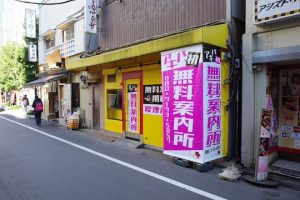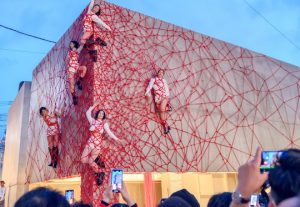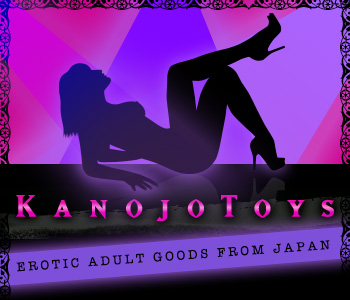Department store in Japan uses fake “adult information booth” to promote event
Parco, a leading department store chain in Japan, has issued an apology after it used a “sex booth” to promote an event.
The installation was decked out in the style of the “free information” kiosks (muryo annaijo) that are found in certain city districts for providing listings, referrals, and recommendations about various forms of sex services (fuzoku), including blowjob parlors, delivery health, and soaplands, and also hostess clubs and girls bars.
Though less common as they were in the days before everyone had access to the internet on their phones, such adult booths are still found in downtown areas like Kabukicho or Shibuya in Tokyo, or Namba (especially Dotonbori) in Osaka.
They can also be found in Nakasu, Fukuoka. But it seems this was a little blatant — or a little too close to home — for regular shoppers at Parco.
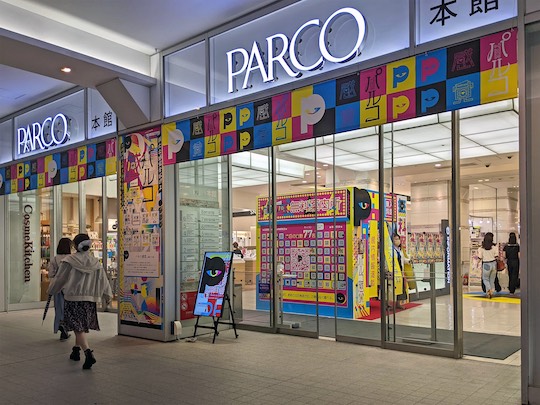
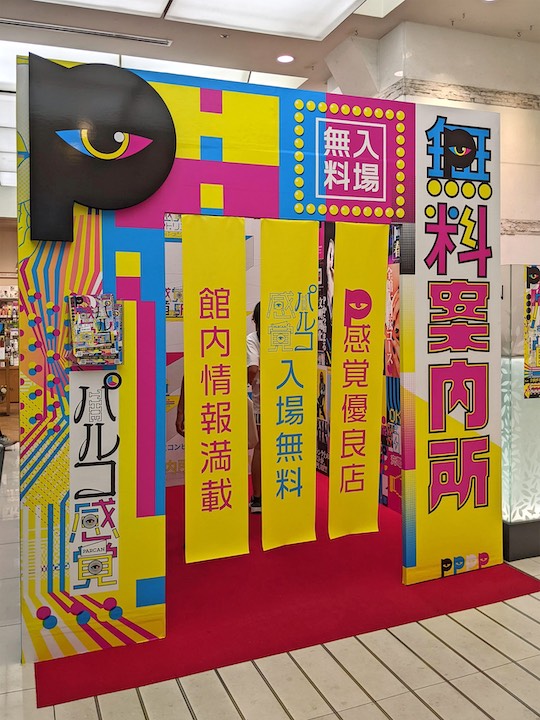
The Fukuoka department store in Tenjin, central Fukuoka, installed a replica free information kiosk on the ground floor.
Though the signage and visuals of the booth evoked such booths associated with adult-related guidance, the colorful pop-up was actually advertising “Parco Sensation,” an art, food, fashion event at the department store.
Nonetheless, the imitation of the seedier style of information booth was pretty obvious, including the reference on one wall to “cast at work today” (a frequent euphemism in the sex trade for the women who are available), though here meaning the artists participating in the event. Venturing inside, a visitor was confronted by (artistic) images of women in their underwear and such text as “No. 1 (girl) to take care of stimulus,” “New sensory stimulation course available now,” and “Ask for optional service.”
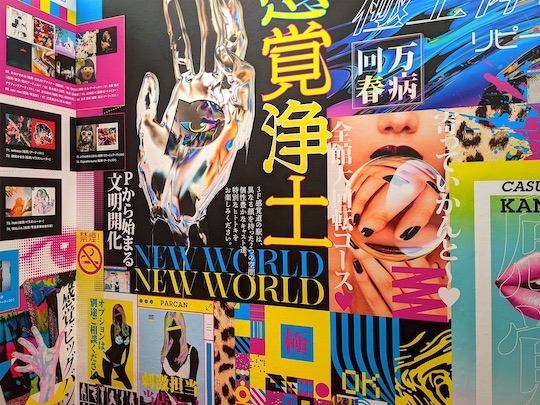
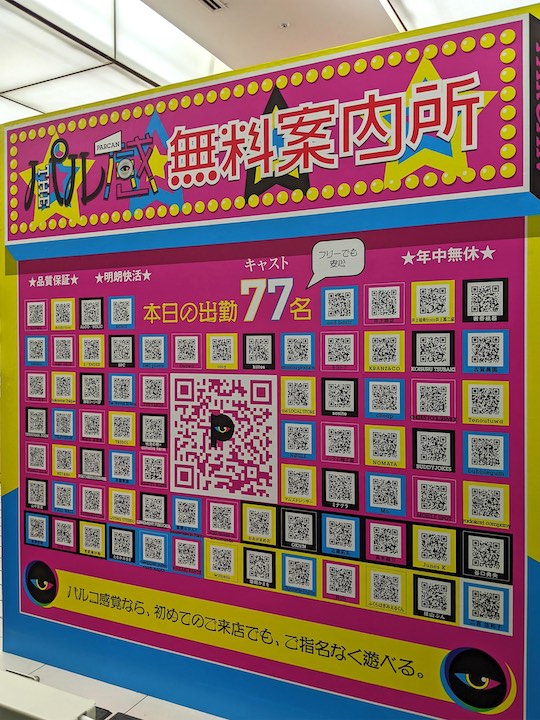
We take our hat off to the Parco PR team for coming up with this bold promotional idea. Unfortunately, it seems a lot of others did not share our enthusiasm, and Parco received a deluge of complaints by phone or email, which then spread on Twitter.
Some of the artists and designers participating in the show were also irked and at least one withdrew.
The kiosk was quickly removed on June 14, though the event continues as scheduled until June 26. Just with a more low-key promo campaign.
In the wake not only of the complaints but also lots of media coverage of the controversy, Parco issued a formal apology. Its verbal response, however, was more ambiguous and fabulously mealy-mouthed. “Our store is close to Nakasu, and because of that, we intended to cheer up the community that was hit hard by the COVID-19 pandemic,” a Parco representative was bizarrely quoted as saying. “We apologize that our production and expression made people who saw it feel uncomfortable.”

